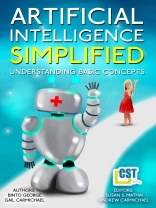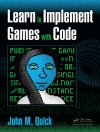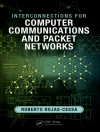A small book that introduces key Artificial Intelligence (AI) concepts in an easy-to-read format with examples and illustrations. A complex, long, overly mathematical textbook does not always serve the purpose of conveying the basic AI concepts to most people. Someone with basic knowledge in Computer Science can have a quick overview of AI (heuristic searches, genetic algorithms, expert systems, game trees, fuzzy expert systems, natural language processing, super intelligence, etc.) with everyday examples. If you are taking a basic AI course and find the traditional AI textbooks intimidating, you may choose this as a ‘bridge’ book, or as an introductory textbook. (This is old edition — a new revised edition is currently available.)
Table of Content
1. Introduction 7
1.1. Organization 9
1.2. The Operating Room Scheduling Problem 11
1.3. Generate and Test 14
2. Scheduling with Search Methods 18
2.1. Blind Search Methods 22
2.2. Heuristic Search Methods 25
2.2.1 Hill Climbing 27
2.2.2 Best First Search 34
2.3. Best Path Methods 35
3. Accommodating Surprises with Planning Techniques 39
3.1. Forward Planning 41
3.2. Backward Planning 42
3.3. Partial-Order Planning 43
3.4. Planning Under Uncertainty 44
4. Evolving Schedules with Genetic Algorithms 47
4.1. Genetic Programming 53
5. Learning from Experience With Neural Networks 55
5.1. Multi-layer neural networks 61
6. Expert Systems for Diagnosis 64
6.1. Expert System Types 66
6.1.1 Forward chaining 66
6.1.2 Backward chaining 67
6.1.3 Hybrid chaining 68
6.1.4 Deduction and reaction systems 68
6.2. Fuzzy Expert Systems 69
7. Handling Competing Goals With Game Trees 72
8. Communicating With Natural Language 78
8.1. Natural Language Understanding 81
9. Identifying Intelligence 85
9.1. Super Intelligence 88
10. Conclusions and Where to Go From Here 90
10.1. AI and Other Disciplines 91
10.2. The Future of Artificial Intelligence 92
Appendix A: Search Methods 96
A.1. Depth First Search (DFS) 97
A.2. Breadth First Search (BFS) 98
A.3. Simple Hill Climbing 99
A.4. Steepest Ascent Hill Climbing 100
A.5. Best First Search 101
A.6. A* 102
Appendix B: Neural Network Learning More Complex Logic 104
Appendix C: Fuzzy Expert System 110
11. Bibliography 118
INDEX 132












